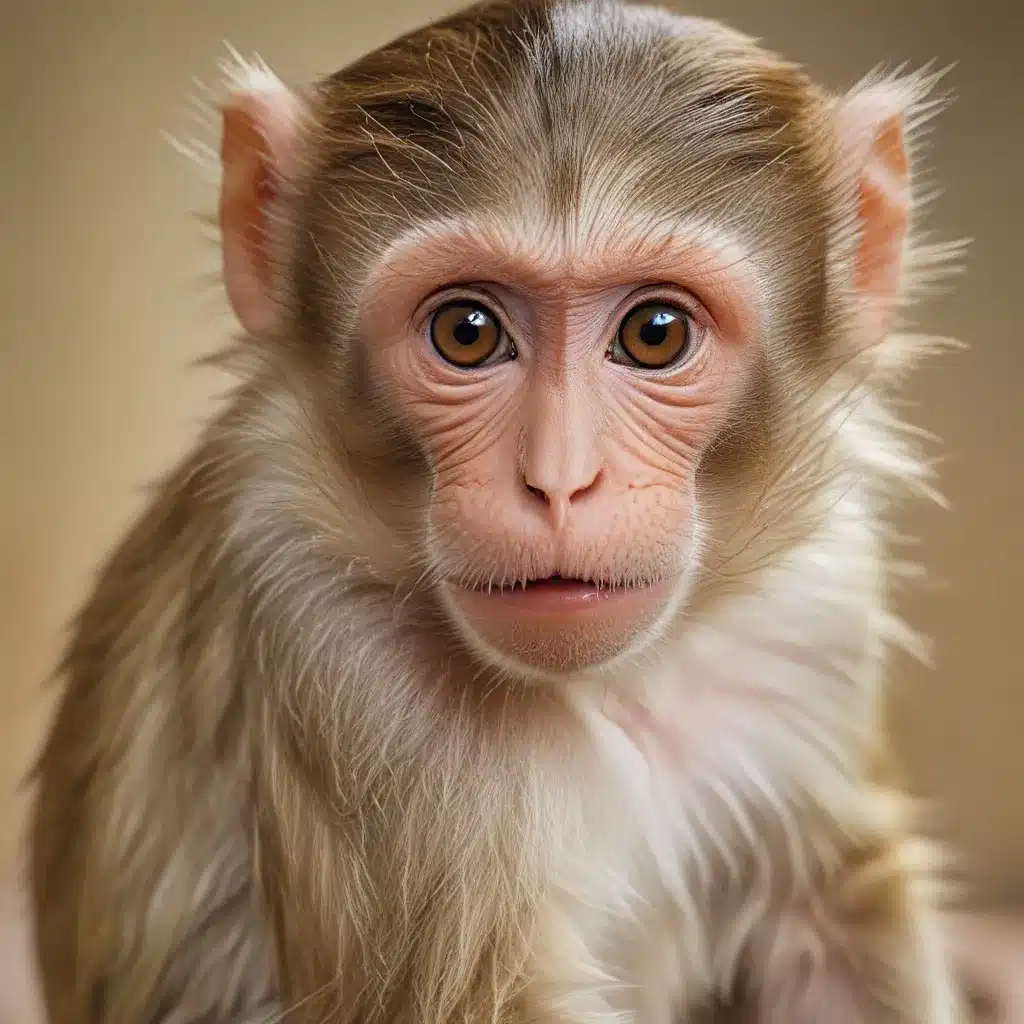
Ah, the allure of having a furry, mischievous primate as a companion – who hasn’t dreamed of it? Monkeys, with their adorable faces and captivating antics, have captured the hearts of many aspiring pet owners. But before you start scouring the internet for the cutest capuchin, it’s crucial to take a step back and consider the myriad of factors at play.
The Lure of Monkey Pets
I get it, the idea of having a little monkey buddy to play with and cuddle is undeniably tempting. After all, they’re intelligent, social creatures that can form strong bonds with their human caretakers. Imagine the joy of watching your primate pal swing from the curtains, groom your hair, and steal your snacks. It’s the stuff of pure, unadulterated entertainment!
And let’s not forget the prestige factor. Owning an exotic animal like a monkey instantly sets you apart from the pack of basic bitch dog and cat owners. Imagine the envy on your neighbor’s face when you stroll by with your capuchin companion perched on your shoulder. You’d be the talk of the town, the ultimate trendsetter.
The Harsh Realities
But alas, the fantasy of monkey ownership is often far removed from the grim realities. These animals are not domesticated like our feline and canine friends – they’re wild creatures with complex needs that are incredibly difficult to meet in a typical household setting.
For starters, the financial commitment is no joke. Purchasing a monkey can easily set you back thousands of dollars, and that’s just the tip of the iceberg. Specialized enclosures, specialized diets, veterinary care, and enrichment activities all add up quickly. Are you prepared to shell out a small fortune to keep your primate pal happy and healthy?
Golden Exotic Pets estimates that the average annual cost of owning a monkey can range from $8,000 to $15,000 or more. That’s a hefty price tag, and it’s not even factoring in the potential for unexpected medical emergencies.
And let’s not forget the legal hurdles. Many jurisdictions have strict regulations or outright bans on keeping monkeys as pets. Flouting these laws could result in hefty fines or even the confiscation of your furry friend. Are you willing to risk the heartbreak of having your beloved monkey taken away?
The Ethical Quagmire
But the financial and legal concerns pale in comparison to the profound ethical issues surrounding monkey ownership. These animals are intelligent, social beings with complex emotional and psychological needs that simply cannot be met in a typical home environment.
Monkeys are highly social creatures that thrive on interaction with their own kind. Depriving them of this fundamental need can lead to severe psychological distress, including depression, aggression, and self-harm. Imagine being forced to live in isolation, with no one to truly understand you – that’s the reality for many captive monkeys.
Moreover, the vast majority of pet monkeys are either taken from the wild or bred in captivity, often in deplorable conditions. This practice not only contributes to the decline of wild populations but also perpetuates a system of animal cruelty. Do you really want to be a part of that?
The Risks of Monkey Ownership
And let’s not forget the very real physical dangers of living with a monkey. These animals are incredibly strong, with lightning-fast reflexes and a propensity for unpredictable behavior. A simple miscommunication or a moment of fear could result in a devastating attack, leaving you or your loved ones seriously injured.
Monkeys also pose a significant risk of disease transmission. They can carry a host of zoonotic illnesses, from herpes B virus to salmonella, that can be deadly to humans. Do you really want to risk your health (or that of your family) for the sake of owning an exotic pet?
Responsible Alternatives
Now, I know what you’re thinking: “But what about all those adorable videos of people playing with their pet monkeys? Surely it can’t be that bad!” And I hate to burst your bubble, but those curated, carefully staged clips are a far cry from the reality of monkey ownership.
If you’re still yearning for a primate-centric experience, I’d strongly encourage you to consider more ethical alternatives, like volunteering at a reputable primate sanctuary or supporting conservation efforts for endangered monkey species. These organizations are dedicated to providing these incredible animals with the care and enrichment they deserve, without the risks and ethical concerns of private ownership.
Conclusion: Proceed with Caution
At the end of the day, the decision to keep a monkey as a pet is a complex one, fraught with financial, legal, and ethical pitfalls. While the allure of owning a cute, charismatic primate is undeniable, the harsh realities of monkey ownership simply outweigh the benefits.
So, if you find yourself dreaming of a monkey companion, I urge you to take a step back and really consider the implications. Is the risk of injury, disease, and potential legal troubles worth the temporary thrill? And can you truly provide the level of care and enrichment these intelligent animals require?
If, after careful consideration, you still feel that monkey ownership is for you, then by all means, pursue it. But for the vast majority of us, it’s best to admire these fascinating creatures from afar and instead focus our energy on more responsible and ethical ways to enjoy the wonders of the primate world. After all, a little distance makes the heart grow fonder, right?

